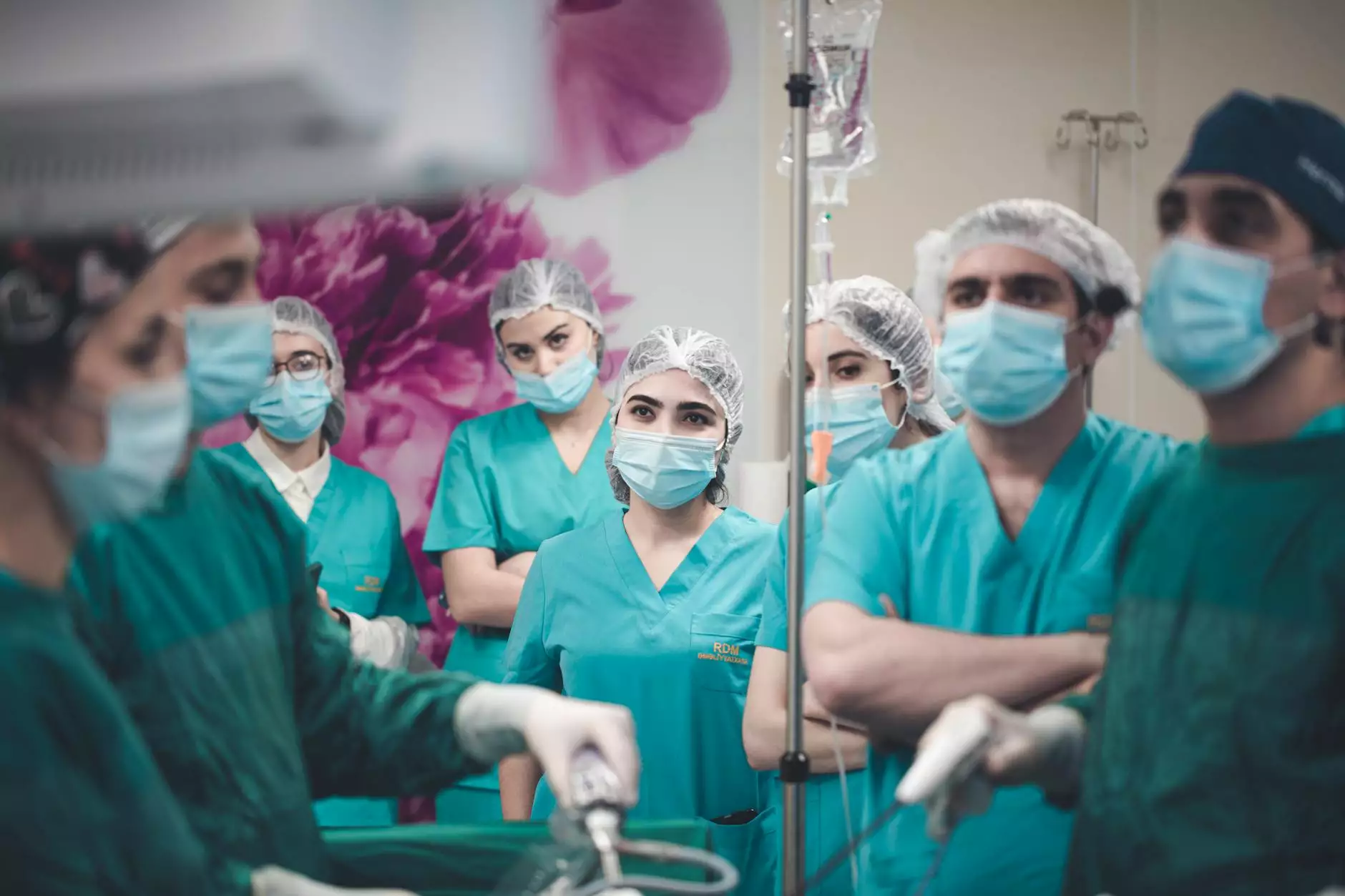The Vital Role of a **Thoracic Surgeon** in Modern Medicine

The field of thoracic surgery encompasses a specialized area of medicine devoted to the surgical treatment of diseases affecting the chest region, including the heart, lungs, esophagus, and more. As a critical component of the healthcare system, thoracic surgeons possess a unique skill set and expertise that ensures the well-being of patients suffering from severe conditions. This article delves into the multifaceted roles of a thoracic surgeon, emphasizing their importance in today's healthcare landscape, particularly in the realms of sports medicine, physical therapy, and overall health.
What is a Thoracic Surgeon?
A thoracic surgeon is a medical doctor who specializes in the surgical treatment of organs within the thorax (the chest). After completing medical school, a thoracic surgeon undergoes extensive training in general surgery and then additional surgical training specifically focused on thoracic procedures. This rigorous training equips them with the necessary skills to address complex health issues.
Key Responsibilities of a Thoracic Surgeon
- Performing Surgeries: This includes operations on the heart, lungs, esophagus, and chest wall.
- Diagnosing Conditions: Utilizing various diagnostic tools to identify thoracic diseases.
- Collaborating with Other Specialists: Working alongside pulmonologists, cardiologists, and oncologists to provide comprehensive care.
- Patient Care: Post-operative monitoring and managing patients' recovery.
- Research and Innovation: Contributing to the advancement of thoracic surgery through research and clinical trials.
Common Conditions Treated by Thoracic Surgeons
Thoracic surgeons are trained to treat a wide variety of conditions, which can include but are not limited to:
- Lung Cancer: Surgical interventions such as lobectomies and wedge resections.
- Esophageal Disorders: Including esophagectomy for cancer or severe gastroesophageal reflux disease.
- Heart Conditions: Procedures such as coronary artery bypass grafting (CABG) and valve repairs or replacements.
- Chest Wall Deformities: Surgical reconstruction of congenital deformities.
- Trauma: Management of thoracic injuries caused by accidents or falls.
The Importance of Thoracic Surgeons in Sports Medicine
In the realm of sports medicine, the role of a thoracic surgeon is often underestimated. Athletes may face unique challenges and injuries that require specialized surgical intervention. Conditions such as rib fractures, pneumothorax, and even certain types of cardiac anomalies can arise in athletic individuals, necessitating the expertise of a thoracic surgeon.
Examples of Conditions Frequently Encountered in Athletes
- Rib Fractures: Common among contact sports, these injuries may require surgical fixation.
- Pneumothorax: A collapsed lung can occur with blunt force trauma; treatment may involve surgery.
- Thoracic Outlet Syndrome: This condition may require surgical intervention to relieve nerve compression.
Collaboration Between Thoracic Surgeons and Physical Therapists
Recovery from thoracic surgeries often necessitates comprehensive rehabilitation, where physical therapists play a pivotal role. The collaboration between thoracic surgeons and physical therapists is crucial for optimal patient recovery. After surgery, patients may require tailored physical therapy programs aimed at:
- Improving Lung Function: Breathing exercises and pulmonary rehabilitation.
- Enhancing Mobility: Gradual movement therapy to regain strength and flexibility.
- Managing Pain: Techniques to mitigate post-operative pain and discomfort.
Innovations in Thoracic Surgery
The field of thoracic surgery is continually evolving, with innovative techniques improving patient outcomes significantly. Minimally invasive surgical procedures have become more common, allowing for:
- Reduced Recovery Time: Patients can return to their daily activities much faster.
- Less Pain: Smaller incisions typically result in less postoperative pain.
- Lower Risk of Complications: Minimally invasive techniques diminish surgical complications.
Choosing the Right Thoracic Surgeon
Selecting the right thoracic surgeon is a critical decision for anyone facing surgery. Here are some factors to consider:
- Board Certification: Ensure the surgeon is board certified in thoracic surgery.
- Experience: Look for surgeons with extensive experience in specific procedures.
- Hospital Affiliation: Consider the reputation and quality of the medical facility.
- Patient Reviews: Research feedback from previous patients.
Conclusion
The role of a thoracic surgeon is indispensable in the healthcare system, particularly in addressing complex health issues related to the chest. Their expertise extends beyond conventional surgery into the realms of sports medicine and holistic patient care through collaboration with physical therapists and other specialists. As medical technology advances and methods improve, the impact of thoracic surgery on patient outcomes continues to be significant. For those seeking a comprehensive understanding of thoracic health and its implications, consulting a qualified thoracic surgeon is a crucial step towards achieving optimal health.
For more information about thoracic surgery and its related fields, visit Hello Physio, where you can find additional resources on health, medical services, sports medicine, and physical therapy.









